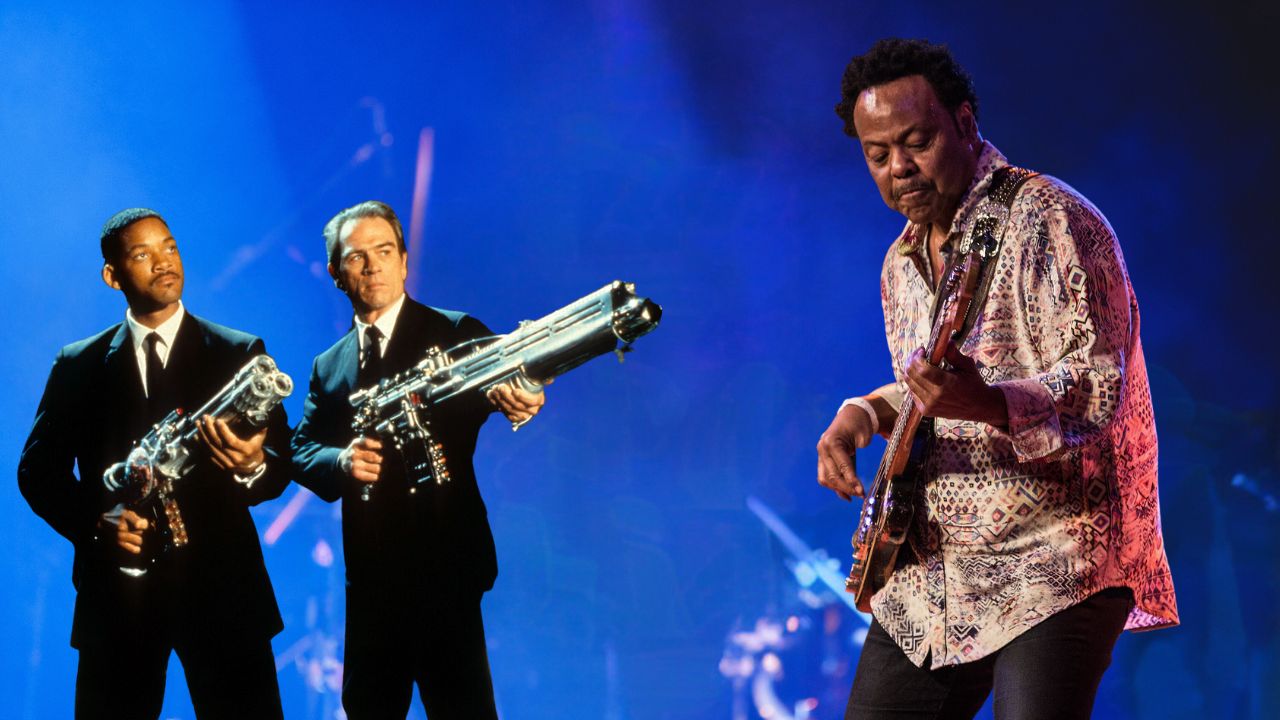“The whole track is driven by the bassline!” How “Ready” Freddie Washington conceived the dance-funk classic that later became a massive hit as Will Smith's Men In Black
The story of Patrice Rushen’s Forget Me Nots, the song that became more famous as the theme from the Will Smith and Tommy Lee film Men in Black and was sampled by George Michael

All the latest guitar news, interviews, lessons, reviews, deals and more, direct to your inbox!
You are now subscribed
Your newsletter sign-up was successful
At the dawn of the ‘80s, the first wave of Larry Graham-inspired would-be thumbslingers receded, leaving behind a number of iconic slap bass standards. Patrice Rushen’s Forget Me Nots being one of them. The song was co-written by veteran L.A. session bassist “Ready” Freddie Washington, who grew up in Graham’s native Oakland, California.
His mentor was another great Bay Area bassist, Paul Jackson, whom he eventually replaced in Herbie Hancock’s Headhunters in 1977. Rushen heard Washington while performing in San Francisco and brought him to Los Angeles in 1978, where he embarked on a hugely successful session career.
Forget Me Nots went on to fuel Rushen’s 1982 breakout album, Straight From The Heart, which reached #23 on the pop charts and #4 on the R&B list. “Freddie’s bassline doesn’t require a lot; the whole track is driven by the bass guitar and the groove of the rest of the rhythm section,” Rushen said in her liner notes. “So many tracks I have recorded have come from just playing, with no agenda. It was just about recognizing that moment when it came up.”
Washington recalled the writing process in the June '99 issue of BP: “I was sitting on my bed at home, jamming on my bass, when this line came to me. I just went where my fingers took me, and it wrote itself into an entire song. I made a demo at a friend’s house, playing to a little rhythm box he had. I took it to lyricist Terry McFadden, who came up with the poetic flower concept. From there I brought it to Patrice and she and I hashed out the verse melody, chords and arrangement.”
The track begins with the main bass hook, which repeats through a full 16-bar chorus. “I purposefully kept the drum part simple because the bass adds all the subdivisions and the feel to the song. When it came to the fills, my focus also became rhythmic more than melodic. I thought of myself as the drummer, building up to the cymbal crashes on beat one.”
The song exploded again in 1997 when Will Smith sampled the chorus for his Grammy-winning soundtrack rap, Men in Black.
The original chorus leads into an interesting breakdown bridge. “I wanted to go somewhere totally different with the song,” said Washington. “So I switched to finger-plucked notes that I muted with my left-hand 3rd and 4th fingers. It’s pure Paul Jackson: that’s me coming right out of Paul’s playbook.”
All the latest guitar news, interviews, lessons, reviews, deals and more, direct to your inbox!
Next saxophonist Gerald Albright solos over a half-chorus, and the song rides out, with more notable bass fills. “If I had switched to a different line in one of the choruses or on the rideout, I wouldn’t have been playing Forget Me Nots anymore. The bassline is the whole song! While I was playing I was thinking of – and moving to – a half-time feel. It’s important to lay back because it’s easy to run away with a bass part like this.”
In 1996, George Michael released Fastlove, the second single from his album Older, where Forget Me Nots was again sampled and incorporated towards the end of the song.
Washington brought both his playing and composing skills to Rushen’s first six solo outings, which are represented beautifully on Haven’t You Heard: The Best of Patrice Rushen. On Forget Me Nots, he played his rosewood-board 1972 Fender Precision Bass, plugged direct into an API console with some added dbx 160 compression.
Chris Jisi was Contributing Editor, Senior Contributing Editor, and Editor In Chief on Bass Player 1989-2018. He is the author of Brave New Bass, a compilation of interviews with bass players like Marcus Miller, Flea, Will Lee, Tony Levin, Jeff Berlin, Les Claypool and more, and The Fretless Bass, with insight from over 25 masters including Tony Levin, Marcus Miller, Gary Willis, Richard Bona, Jimmy Haslip, and Percy Jones.



